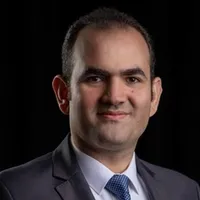In recent weeks, video clips have spread on social media of many Egyptians, women and men, old and young, complaining of poverty, hunger and weakness as a result of the tsunami of high prices that is sweeping their country. This is a result of a virulent economic and financial crisis that “imported” painkillers and Gulf first aid cash injections are no longer able to affect. Not even plastic surgery could hide its features.
Seven years ago, I read a scientific study conducted by the University of Colorado Boulder in the US, published by the Science Daily. It said that treatment with some painkillers meant to relieve pain may actually prolong the feeling of pain, because they infect other cells with chronic pain that people feel for long periods of time. Before this study, doctors advised avoiding excessive use of painkillers because it harms the kidneys and stomach.
READ: Egypt politicians demand Sisi intervene to stop Israel invasion of Rafah
The results of this study — even if it concerns medicine — are not unrelated to what is happening in the Egyptian economy. Using some tools to address a crisis in one sector may cause a crisis in other sectors. The simplest example of this is that increasing interest rates is the only main tool to relieve rampant inflation, but it causes other pains, including, for example, higher borrowing costs, a decline in the volume of new investments, a decline in employment rates and a rise in the unemployment rate. In some countries, the increase in interest is accompanied by a decline in the value of the local currency against foreign currencies and inflation rates rising again in the long term.
The truth is that, over the past ten years, Egypt has used painkillers excessively to treat its economic and financial crisis.
It became addicted to taking loans, resorting to Gulf aid, and relying on easy solutions by increasing taxes, selling attractive assets, lifting subsidies and increasing service prices, until it entered what economists call the infernal cycle. This is a continuous cycle of overlapping crises from which it is impossible to escape. The term “infernal cycle” is similar to the popular proverb “out of the frying pan into the fire.”
For example, if we look at the foreign debt cycle within this infernal cycle, we find that Egypt has borrowed about three and a half times the amount of its foreign debt in 2014 just in the past decade, yet it still suffers from a huge financing gap, because of the increase in debt payments and interest from the loans it borrowed from international financial institutions and global debt markets. It is also currently negotiating with the International Monetary Fund to obtain a new loan on terms that may be more harsh and unfair than previous agreements, the bitterness of which will be felt by millions of poor, low- and middle-income Egyptians who will bear the burden of it.
READ: Egypt should respond to Gaza according to its status and ability to act, says Nasserist Party
According to the Central Bank of Egypt, the total foreign obligations that Egypt is required to repay during the fiscal year 2024 amount to $42.3 billion ($32.8bn in medium- and long-term debt, and another $9.5bn in debt instalments and short-term interest). This means that the external debt cycle alone will this year eat up more than half of the state’s revenues, and will contribute, along with other factors, to the expansion and increase of the connected cycles within the infernal cycle. This includes the escalation of the public budget deficit, the rise in the public expenditure bill (state expenses), the decline in the value of the Egyptian Pound, the increase in prices, the imposition of new taxes, and so on.
The Egyptian economy is now in the ICU due to a series of poorly considered decisions over the past ten years that have exhausted its body and capabilities and wasted its assets. It needs effective treatment and real reform programmes as a matter of urgency to control the financial situation, re-establish balance, and restore confidence in the economy before the situation worsens and deteriorates even more. The truth of the matter is that the biggest obstacle preventing economic recovery is that the government is continuing to adopt the same policies and relying on the IMF’s treatment and its toxic painkillers, which may lead to the slow death of the Egyptian economy.
This article first appeared in Arabic in Arabi21 on 9 February 2024
The views expressed in this article belong to the author and do not necessarily reflect the editorial policy of Middle East Monitor.


![Two pairs of US hundred dollar and Egyptian hundred pound notes are held before a window showing the skyline of Egypt's capital Cairo and the Nile river on January 16, 2023 [KHALED DESOUKI/AFP via Getty Images]](https://i0.wp.com/www.middleeastmonitor.com/wp-content/uploads/2024/02/GettyImages-1246287676-scaled-e1707833214430.jpg?fit=1200%2C800&ssl=1)









